Da Sy village in Hanoi has long been known for its rich blacksmithing heritage. Now, visitors can enjoy this centuries-old tradition by forging their own kitchen knives. Over the course of a 2.5-hour workshop, you will master time-honored techniques under the guidance of an English-speaking expert. As they create their unique keepsakes, they’ll gain a deeper appreciation for the village’s artistry and its transition from weaponry to culinary tools. This hands-on experience promises to be a captivating journey through Da Sy’s vibrant history – one that may leave you yearning to uncover more.
Key Points
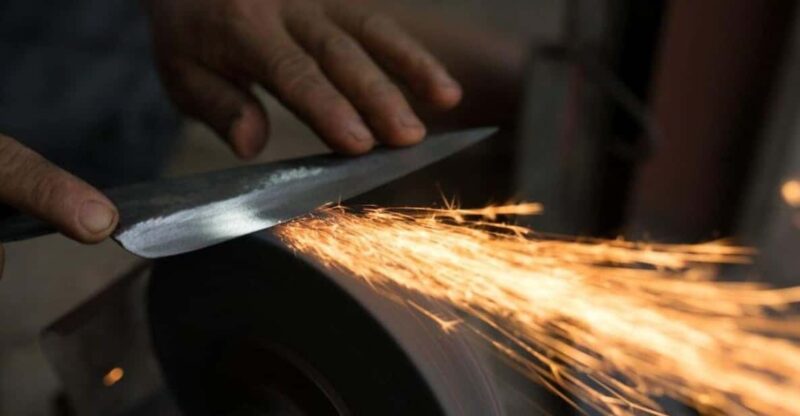
- Participants forge their own kitchen knives using traditional blacksmithing techniques in Da Sy village, a historic center of metal craftsmanship.
- The 2.5-hour workshop guides participants through the entire knife-making process, from shaping the rough draft to tempering and sharpening.
- The experience offers an immersive glimpse into Da Sy’s rich blacksmithing heritage, which evolved from weaponry to agricultural and culinary tools.
- Safety precautions, such as wearing long sleeves and closed-toe shoes, are in place to ensure a safe and enjoyable experience.
- The workshop is highly rated by past participants, who praised the exceptional hospitality and the opportunity to create a unique, customized kitchen knife.
Overview of the Activity
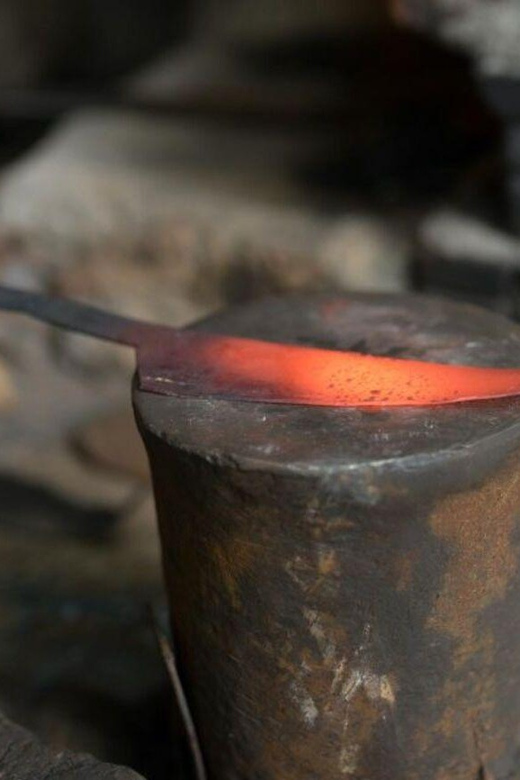
Visitors can partake in the traditional craft of knife making during a 2.5-hour experience in Da Sy village, Hanoi. Priced from K1,563 per person, the activity offers the chance to forge one’s own knife using time-honored techniques.
Participants will create their unique kitchen knives, taking home the finished product. Free cancellation is available up to 24 hours in advance, and a reserve now, pay later option is provided.
This activity immerses guests in the rich blacksmithing heritage of Da Sy, where the village once supplied weapons during Vietnam’s wars before transitioning to agricultural and culinary tools in peacetime.
You can also read our reviews of more tours and experiences in Hanoi.
Historical Context of Blacksmithing
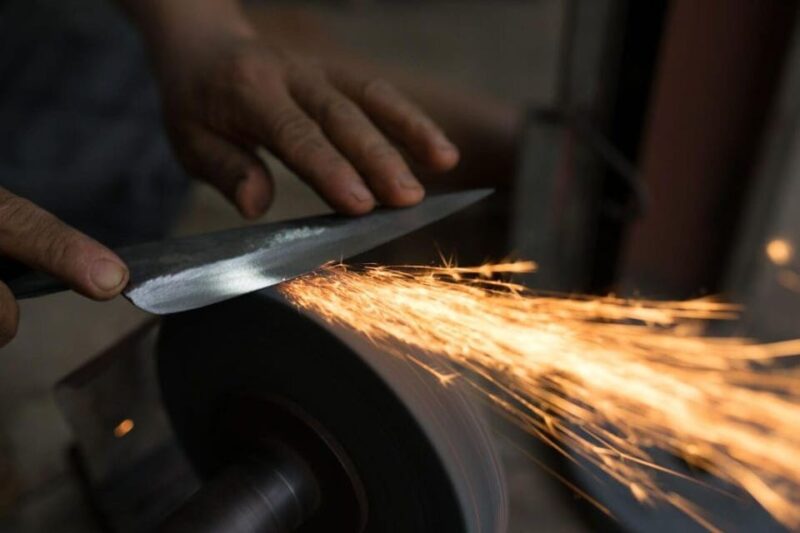
Da Sy village has a long-standing history in blacksmithing, supplying weapons during Vietnam’s wars. Post-war, the village shifted focus to making agricultural tools and kitchen implements. The traditional forging process involves several key steps:
| Stage | Description |
|---|---|
| Rough Draft | Crafting the initial shape of the blade |
| Maintaining Fires | Stoking the furnace to achieve the right temperature |
| Shaping Red-Hot Iron | Hammering the glowing metal into the desired form |
| Tempering | Heating and cooling the blade to improve its strength and flexibility |
| Sharpening | Refining the edge for a keen, precision cut |
These time-honored techniques have been passed down through generations, preserving Da Sy’s rich blacksmithing heritage.
Traditional Forging Processes
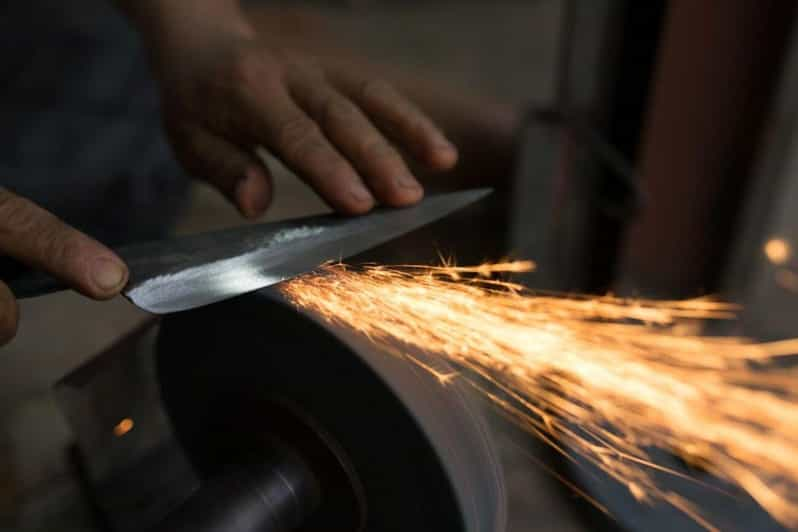
During the knife-making experience, participants engage in the time-honored forging processes that have been passed down through generations in Da Sy village.
They first create rough drafts, carefully maintaining the fires to ensure the proper temperature for shaping the red-hot iron.
With skilled hands, they then meticulously hammer and mold the metal, infusing each blade with the unique character of traditional craftsmanship.
The final steps involve tempering the knife to strengthen the steel and sharpening the edge to perfection.
Through these meticulous techniques, participants forge their own lasting keepsakes, steeped in the rich heritage of Da Sy’s blacksmithing legacy.
Hands-on Knife Making Workshop
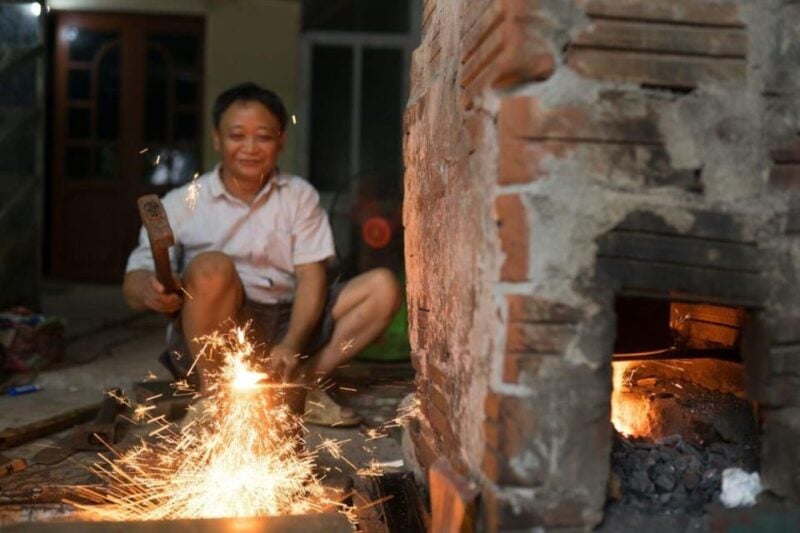
The hands-on knife making workshop offers participants a unique opportunity to forge their own kitchen knife using time-honored techniques.
During the 2.5-hour experience, visitors will learn the traditional forging process, including making rough drafts, maintaining fires, and shaping red-hot iron.
Under the guidance of an English-speaking facilitator, they’ll craft their knife from start to finish, honing and tempering it to perfection.
Participants leave with a one-of-a-kind knife and a newfound appreciation for the skilled artistry of Vietnam’s blacksmiths.
The workshop includes all necessary equipment, tools, and materials, as well as light refreshments to fuel the creative process.
More Great Thing To Do NearbyRequired Safety Precautions
To ensure a safe and enjoyable knife-making experience, participants are required to adhere to several precautions. Long sleeves and pants are recommended to protect against hot sparks, and dresses are not allowed. Comfortable, closed-toe shoes are a must. Plus, participants must have check-in luggage to transport their finished knives home, as the workshop is not suitable for those with mobility impairments or wheelchair users.
| Safety Precautions | Reasons |
|---|---|
| Long sleeves and pants | Avoid sparks |
| Closed-toe shoes | Protect feet |
| Check-in luggage | Carry finished knives |
| Not for mobility issues | Difficult access |
The English-speaking facilitator will ensure all participants follow these guidelines for a safe and memorable knife-making experience.
- 2 Day 1 Night Bai Tu Long Bay Luxury Junk
- Hanoi: 2-Day Sa Pa Guided Village & Homestay Trekking Tour
- From Hanoi : Sapa Moutain Trek – Halong Bay Heritage
- Pu Luong, Ninh Binh – 3 Days 2 Nights Tour – New Tour – 20% Discount
- From Hanoi: Hoa Lu & Tam Coc With Buffet Lunch & Cycling
- Hanoi: Water Puppet Show Skip-the-Line Ticket
Logistics and Preparation
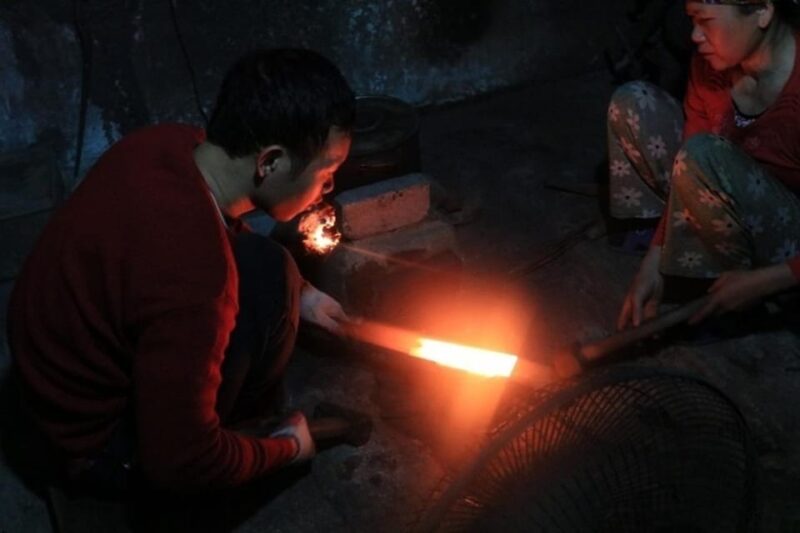
Participants can expect a well-organized and streamlined experience from start to finish.
The knife-making workshop includes all necessary equipment, tools, and materials. Participants will forge their own kitchen knife using traditional techniques under the guidance of an English-speaking facilitator.
To ensure safety, long sleeves, long pants, and comfortable shoes are recommended, as sparks may fly during the forging process.
As the finished knives aren’t allowed on carry-on luggage, participants must have check-in luggage to take their creations home.
While the activity isn’t suitable for those with mobility issues, it offers an immersive look into Da Sy village’s longstanding blacksmithing heritage.
Participant Feedback and Reviews
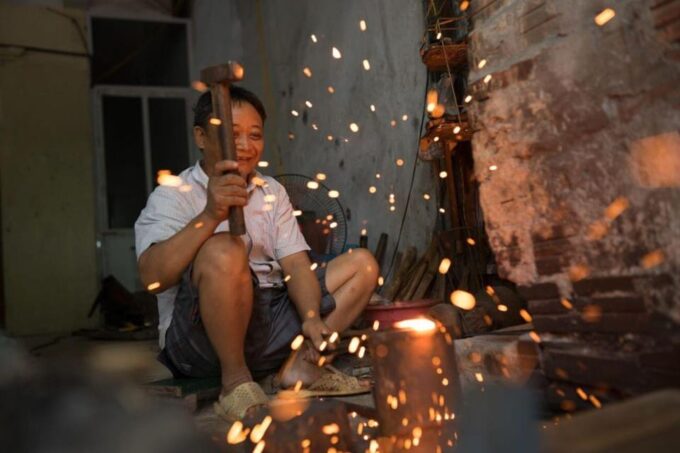
Overwhelmingly positive reviews from past participants highlight the exceptional hospitality and the uniqueness of the traditional knife-making experience, offering a welcome respite from the crowds of mass tourism. Participants express a profound sense of pride and accomplishment in creating their own customized kitchen knives through the traditional forging process. The overall rating of the activity stands at an impressive 5/5, with reviewers praising the knowledgeable English-speaking facilitators and the opportunity to enjoy the rich history and heritage of Da Sy village’s blacksmithing tradition.
| Participant Reviews | Key Highlights |
|---|---|
| Overall Rating | 5/5 |
| Positive Feedback | Excellent hospitality, unique experience away from mass tourism |
| Participant Sentiment | Pride in creating customized kitchen knives |
| Facilitator Praise | Knowledgeable English-speaking guides |
Booking and Reservation Information
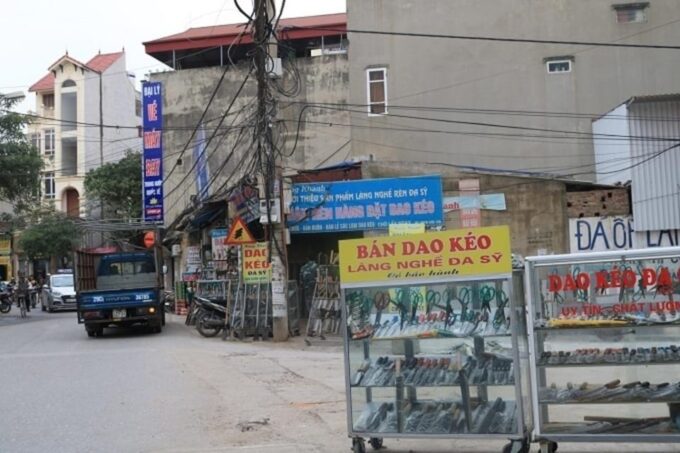
The workshop’s booking and reservation process offers travelers several convenient options. Visitors can reserve their spot now and pay later, providing flexibility for planning and budgeting.
Plus, the activity allows for free cancellation up to 24 hours in advance, accommodating changes in travel plans.
The experience is priced from K₵1,563 per person, making it an affordable and accessible option for those seeking a unique culture.
Some key details about the booking process include:
- Reserve now & pay later option available.
- Free cancellation up to 24 hours in advance.
- Pricing starts from K₵1,563 per person.
- Secure your spot in advance to guarantee availability.
Frequently Asked Questions
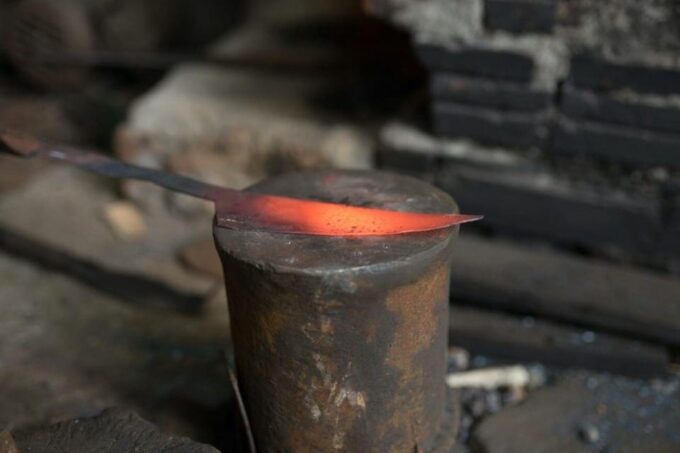
Can I Bring My Own Design Ideas for the Knife?
Yes, participants can bring their own design ideas for the knife. The workshop allows them to customize their creation by incorporating personal preferences into the traditional forging process.
What Are the Options for Personalizing the Knife?
Participants can personalize the knife by incorporating their own design ideas. The facilitator works with each person to customize the shape, size, and details of the knife during the forging process, enabling a unique handcrafted product.
Is There an Age Limit for Participating in the Activity?
There’s no age limit for the knife making workshop. Participants of all ages are welcome to forge their own knives using traditional techniques. The facilitator provides guidance and supervision throughout the 2.5-hour experience.
Can I Take Photos or Videos During the Workshop?
Participants are generally allowed to take photos and videos during the traditional knife making workshop. However, they should be mindful not to disturb the forging process or other participants. The workshop facilitator can provide guidance on appropriate times to capture the experience.
Are There Any Discounts or Special Offers Available?
There are discounts available for group bookings of 3 or more people. Plus, children under 12 receive a 50% discount. Special offers may also be available, so it’s best to check the provider’s website or contact them directly.
Recap
The traditional knife-making experience in Da Sy village offers a unique opportunity to connect with Hanoi’s rich blacksmithing heritage. Participants forge their own kitchen knives, guided by skilled artisans, and emerge with a one-of-a-kind keepsake that celebrates the region’s transition from weaponry to culinary tools. This hands-on workshop not only hones craftsmanship but also fosters a deeper appreciation for the enduring artistry of Da Sy’s blacksmiths.
You can check if your dates are available here:More Tour Reviews in Hanoi
- From Hanoi: 4 Day Ha Giang Loop Motorbike Tour With Rider
- Hanoi: Long Bien Sunrise Photography Tour
- From Ha Long: 2 Day Ha Giang Loop Motorbike Tour With Rider
- Cao Bang & Ban Gioc Waterfall Day Tour by Motorbike
- Hanoi: Sapa 2-Days With Cat Cat and Fansipan Peak- Trekking
- Private Hanoi City Half Day With Guide, Train Street
Not for you? Here's more things to do in Hanoi we have recnetly reviewed
- 2 Days Customized Private Car Trip to BAN GIOC WATERFALL
- Mua Caves, Van Long Nature Reserve, Hoa Lu Private Day Trip
- Hanoi: 3D2N Ha Long, Lan Ha Bay by Le Journey Luxury Cruise
- From SaPa: 4 Day Ha Giang Loop Motorbike Tour With Rider
- Hanoi: Luxury Lan Ha Bay Jade Sails Cruise With Buffet Lunch
- From Hanoi: 2-Day Pu Luong Nature Reserve Tour
- Hanoi: 3D2N Ha Long Bay by Hera Boutique Cruise
- From Ha Noi: Ha Giang Loop 4-Day Tour Self-driving/easyRider
- HANOI: EXPLORE CAT BA – LAN HA BAY (2DAY 1NIGHT)
- Hanoi: 2-Day Ha Long Bay 4-Star Cruise With Titov Cave
- Cao Bang: Cao Bang Loop Motorbike Tour : 3 Days 2 Nights
- Hanoi City Full Day Private Guided Tour
